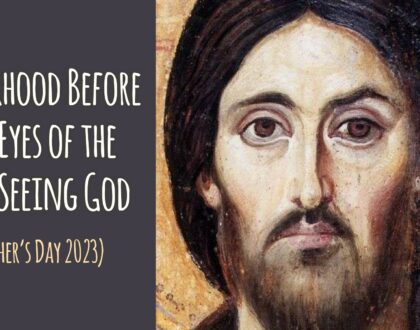Reflection Questions – Satan File 7: The Appalling Vision (2 Thess. 2.1-9, Dan. 8.23-27, Rev. 13.6-8)

by Pastor Gene
2 Timothy 2:24-26: “And a servant of the Lord must not quarrel but be gentle to all, able to teach, patient, 25 in humility correcting those who are in opposition, if God perhaps will grant them repentance, so that they may know the truth, 26 and that they may come to their senses and escape the snare of the devil, having been taken captive by him to do his will.”
- In the above passage, Paul wisely shows the Lord’s servants how to approach those who are in error. Discuss each part of this passage. What jumps out at you? Who is responsible for “correcting those who are in opposition”? What should our heart attitude be when doing so (Gal. 6:1). Who is responsible for granting them repentance? Who is actively trying to snare them? What is that snare – how does Paul define it?
- Let’s think about what’s really going on when we share the Gospel with unbelievers. God’s Word is clear: Satan’s goal toward unbelievers is to blind their minds to keep them from seeing the glory of Christ (2 Corinthians 4:3-4). Jesus taught that Satan actively seeks to steal away the seed of God’s Word from the hearts of the unsaved, lest they should believe and be saved (Luke 8:12). I find it interesting that most folks who speak about their unbelieving friends or loved ones do so in very ‘natural terms’ (‘they simply refuse to believe,’ etc.). Rarely do I hear them mention Satan’s influence over the lost. But Jesus and the Apostles affirmed the active role Satan plays in keeping the lost very lost! The Bible holds unbelievers responsible for their rejection of Christ, but it also acknowledges their powerful adversary! Have you ever thought of your efforts at evangelism in this light – as spiritual warfare? How have you witnessed supernatural blindness in those you’ve witnessed too? Have you encountered opposition in handing out Bibles or the ‘Jesus Film’ dvds in the city? Or when witnessing at work or at school or in your family or your neighborhood? In our desire to share the Gospel, we are facing demonic opposition! How might acknowledging this change the way we approach evangelism?
- One of the first points we made about Satan in this current study is that he is a person who truly exists. As basic as that may sound, the prevailing view of Satan today – even among satanists – is that he merely ‘represents the principle of evil’ in the earth! The Bible, however, is unambiguous about his existence as a real person. How does the view that Satan is not an actual person help him to further his agenda in the earth? (How the devil must rejoice in this idea, knowing how he loves to distort the truth of God’s Word!) If you were asked to prove that Satan is a real person from Scripture, how would you do it? [After discussing this, Genesis 3:1-6, or Matthew 4:3-11, or Luke 4:13, or Luke 13:16, or John 12:31!]
- Not only is Satan a real person, but he’s very active and influential in the earth. In John 14:30, Jesus called him “the ruler of this world” (cf., John 12:31). The Apostle John tells us that “the whole world lies in the power of the evil one” (1 John 5:19). In 2 Corinthians 4:4, Paul calls him the “god of this age,” literally. Besides that, Paul also calls him “the PRINCE of the power of the air, the spirit that is NOW at work in the sons of disobedience” (Ephesians 2:2). Read through these verses. How do they reveal the devil’s finger-prints on the news events we encounter each day? Or in the troubles we face as we try to live pure lives and follow Jesus? How do you think Satan is the “ruler of this world” and the “god of this age”? Where do we see him working? What does 1 John 5:19 mean practically?
- Hebrews 2:14-15 tells us that Satan holds men and women in “lifelong slavery” through “the fear of death.” Not to death necessarily, but to the fear of it. What do you think this means? Have you ever experienced this or witnessed it first hand? How do Jesus’ words in Revelation 1:17-18 change our perspective on death? Or Psalm 116:15?
Recommended Posts

Reflection Questions: Fatherhood Before the Eyes of the All-Seeing God (Father’s Day 2024)
June 16, 2024


